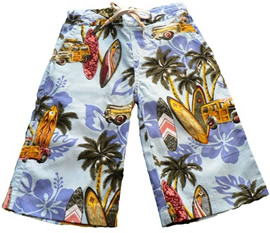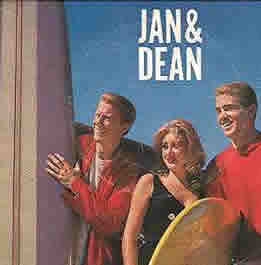
arts
Boomers Revel In California Surf Culture
You see they never roll the streets up ’cause there’s always something goin’
Surf City, here we come
You know they’re either out surfin’ or they got a party growin’
Surf City, here we come
Well, with two swingin’ honeys for every guy
All you got to do is wink your eye
Yeah, we’re goin’ to Surf City, ’cause it’s two for oneFrom Surf City, by Jan & Dean in 1963, their first #1 hit
 Wild-colored baggy trucks, peroxide blond hair, a lightweightfiberglass board jutting from the window of a Ford “Woodie” and Surf City blaring on the radio—you’re “amped,” and looking “gnarly.” The 1960s boomer pop culture scene began in Southern California and swept east like a tsunami.
Wild-colored baggy trucks, peroxide blond hair, a lightweightfiberglass board jutting from the window of a Ford “Woodie” and Surf City blaring on the radio—you’re “amped,” and looking “gnarly.” The 1960s boomer pop culture scene began in Southern California and swept east like a tsunami.
Dudes and chicks who flocked to the sand and whitecaps were renegades of a sort, rebelling against the uptight 1950s Man in the Grey Flannel Suit regimen. These young boomers may not have looked like beatniks but they shared a rejection of traditional middle class values. Unlike many beatniks, they weren’t angry or political or literary. “Activism” meant getting to the water before the “squares.” They were more beach bum than beatnik.
 An unmistakable music defined the lifestyle. The reverberating guitar beat sent Good Vibrations to landlocked boomers in Peoria and Pittsburgh, delivering the pop culture mix of girls, surf, and cool cars via groups like the Safaris, Jan & Dean, and the hit-machine Beach Boys whose first three albums were titled Surfing Safari, Surfing USA, and Surfer Girl.
An unmistakable music defined the lifestyle. The reverberating guitar beat sent Good Vibrations to landlocked boomers in Peoria and Pittsburgh, delivering the pop culture mix of girls, surf, and cool cars via groups like the Safaris, Jan & Dean, and the hit-machine Beach Boys whose first three albums were titled Surfing Safari, Surfing USA, and Surfer Girl.
Hollywood movie producers knew a boomer gold mine when they saw one and jumped on the boogie board, churning out “beach party” movies that glorified carefree summers. Any hint of baby boomer alienation got washed away with the surf. An East Coast version burgeoned with cute Connie Francis going Where The Boys Are and establishing Ft. Lauderdale as the boomer spring break destination.
Everyone was having such a bitchin’ fun time. Good thing, life was about to get more complicated. As political and social unrest dominated the headlines, the fun-in-the-sun boomer beach life was beginning to “frig” the “dunes” into obscurity.
Trivia Factoids
In the turbulent 1970s, Ft. Lauderdale spring break continued unabated and unleashed. It was less surf culture than surf hedonism. The second wave of baby boomers were wilder than their older siblings. Alcohol, drugs, fights, girls going wild, boys behaving badly, cheap motel sex, and property damage took some luster off the annual migration. The lure of tourist dollars keeps the institution alive and kicking sand.
On Fourth of July 1980, the Beach Boys played before an enthusiastic boomer crowd on the National Mall in Washington, D.C., an event repeated the next two years. Then, Secretary of the Interior James Watt banned the group because the concerts drew “undesirable elements.” Many boomers clung to their long hair and radical politics but still dug the Beach Boys. Fortunately, it had friends in high places. None other than Nancy Reagan intervened and apologized for the administration. She invited the Beach Boys to play again in 1984. Gnarly, sister.
Terry Hamburg writes the Boomer to You blog about the exciting and revolutionary baby boomer years.
© 2006-2013 ConceptDesign, Inc. Terms of Use
BoomSpeak - For babyboomers - by babyboomers.